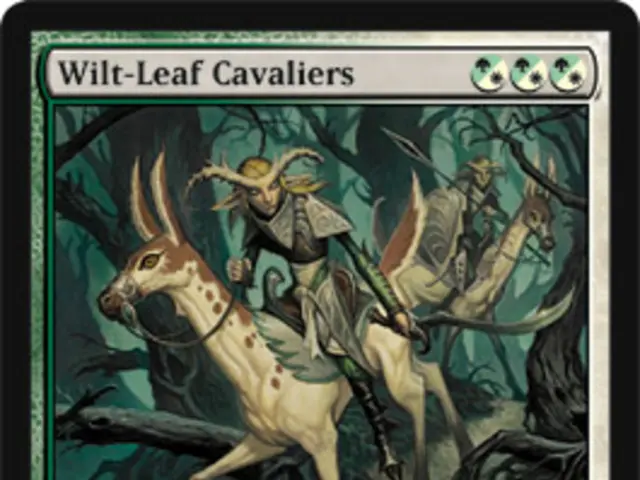Workplace Gurus Offer Insights on Acing Your Professional Image
Your personal brand is what people whisper about you behind closed doors. It's your rep, your promise, the story they carry around about you over time. Yet, your presence is what they feel when you're in the same room. It's how you grab their attention, make them lean in, and leave them feeling something. A strong brand pulls them through the door, while a powerful presence keeps them hooked and hanging on your every word.
I've swapped yarns with a bunch of Hall of Fame speakers, folks who've spent lifetimes crafting this skill through blood, sweat, and tears - or maybe just experience, repetition, and connection. Here's some advice they've shared on how to master your presence at work. To make it into the Speaker Hall of Fame, you gotta consistently knock 'em dead with your presentations, leave a lasting impact, and be recognized by your peers as a top-tier speaker. Needless to say, I learn a helluva lot from these legends, and I'm here to share their secrets with you.
The Power of Preparation and Follow-Up
Preparation's the backbone of any formidable presence. Folks who connect with people most powerfully often put in the hard yards before they set foot in the room. They get to know their audience, clarify their message, and think about how to follow up. Back in the day, legends like Zig Ziglar and Tom Hopkins prepared for every event like it was the Big Kahuna. Tom, the sales training god who taught millions how to close deals, said he prepared like it was life or death. He even laughed and said, "I followed up until they bought or passed away." That kind of reliable, no-nonsense presence makes people feel special.
Sometimes, people just need to hear a message in a fresh new way. Joe Calloway, a master at helping leaders drive performance, has a unique knack for making people feel special. After one of his keynotes, a CEO approached him and said, "You said the same things I've been telling them for years, but this time, they actually listened." Now that's a powerful presence!
Leveraging Humor and Personality
Humor and personality are great ways to connect with people on a human level. The best speakers use them to help people let their guards down and focus on what matters. Sharing stories that people can relate to helps break down walls. Many of these speakers keep notes about stories, tweaking or enhancing them so they're even funnier or more relatable. In the office, that can be an effective way to share success stories and build a reputation as someone who's both hilarious and generous.
Mark Sanborn, a man who loves to show how small acts can have a significant impact, wasn't always a comedian. He told me he focused too much on the content and forgot the importance of connection. People might not remember every slide, but they'll remember how you made them feel – so it pays off to focus on the human connection.
Mikki Williams, who's known for her bold presence and theatrical delivery, once said, "You're either memorable or forgettable. There's no in-between." She's certainly memorable, leaning into who she is – big hair, bold clothes, a strong voice, and humor that comes from real life. She calls it "reliving, not retelling." Her dramatic on-stage presence is undeniably unforgettable.
Willie Jolley's story about getting replaced by a karaoke machine at a nightclub made people laugh the first time he shared it. It was the moment he decided to switch things up. "A setback is just a setup for a comeback," he said. His humor helped him change his career trajectory.
Larry Winget, known as the "Pitbull of Personal Development," was upfront that he wasn't trying to be liked. He focused on being consistent and candid. He reminded me that presence goes beyond the stage – it trickles down to interviews, emails, and everyday interactions. He told a story about someone thanking him for his passion, and he responded, "That wasn't passion. That was excellence. I'm just good at my job." That kind of confidence, delivered with humor and brutal honesty, is part of what makes him so memorable.
Confidence and Clarity
Confidence and clarity often go hand-in-hand. You don't need a mouthful of words to sound credible. What people need is a speaker who means what they say and says it clearly. Many Hall of Fame speakers said their presence improved once they stopped trying to impress and started focusing on clarity.
Ford Saeks, a business growth expert, once told me that overthinking is a significant barrier to presence. People try too hard to be perfect that they miss the moment. "Done is more profitable than perfect," he said. As he pointed out, presence isn't just about that killer keynote speech – it shows up in every setting, digital and otherwise. "What people find when they Google you is part of your presence," he reminded me.
Phil M. Jones, a master of word choice and persuasion, said that the best communicators study the power of words. They choose their phrasing strategically, so people understand the message they're trying to convey.
Noticing Reactions and Responsiveness
Presence can also be found in how people react to you. It might be how they respond in surprising situations, or how they behave under pressure.
Scott McKain, a branding expert and storyteller who focuses on how to create distinction, shared a moment when he was speaking at the White House and noticed Arnold Schwarzenegger, Altogether A-list, sitting in the front row, fully engaged and taking notes. Even the greatest speakers can feel the pressure to shine, and to see someone like Schwarzenegger hanging on every word left an indelible impression on McKain.

Jay Baer, a marketing strategist who focuses on responsiveness, stressed the importance of being useful in stressful moments. He added that people remember leaders who are available, responsive, and real, especially when things go wrong.
Making Others Feel Seen
Presence often comes down to noticing the little things others might miss. Several speakers brought up the power of active listening, recognizing effort, and showing that people matter. These small, intentional moments reflect genuine engagement.
Randy Pennington, known for helping organizations build cultures of trust, explained that presence is about noticing. It means pausing to say thank you and acknowledging someone's effort before they leave your team. If you wait too long, the moment passes. Presence is about being present in the moment, rather than waiting for a convenient time.
Bob Burg, who has a profound belief in listening as a superpower, said that the best listeners are the ones others remember. He emphasized the importance of giving someone your undivided attention. Offering that level of focus is rare and often more powerful than anything you say.
Consistency Drives Influence
Presence is something that develops over time through deliberate practice. The most influential speakers I spoke to emphasized that maintaining a consistent presence goes beyond the stage – it shows up in every interaction.
Stacey Hanke, an expert in how to stay influential in every interaction, said that presence is an "everyday" habit. You can't be great in a presentation and then disconnected in meetings. People notice the inconsistency. Hanke encourages leaders to record themselves, ask for honest feedback, and work on demonstrating consistent influence across all settings.
Marilyn Sherman, who helps people stop settling, reminds us that courage isn't always loud. Sometimes it's simply showing up and saying, "This matters." She helps people identify where they've been holding back and take steps to change it.
Common Missteps That Weaken Your Presence
Some common ways people weaken their presence include:
- Talking too much without checking in
- Using filler words instead of pausing
- Trying too hard to sound impressive
- Inconsistency across platforms or roles
- Ignoring cues from others in tone or body language
Remember, presence is not about being perfect. It's about being intentional, being present, and being authentic.
Tips to Improve Your Presence at Work
Whether delivering presentations or not, presence matters. It's important in meetings, emails, interviews, and hallway conversations. Here are some valuable tips from the pros:
- Prepare like it's important (because it is!)
- Share stories that resonate and make ideas memorable
- Use humor and your unique personality to build trust
- Communicate clearly and listen attentively
- Respond in the moment, especially in tense situations
- Maintain consistency in every setting, big and small
Your presence at work is a trainable advantage. Learning from Hall of Fame speakers can help you develop a strong presence by focusing on preparation, humor, clarity, listening, and follow-through. Every speaker I talked to emphasized the importance of practice, paying attention, and consistency in building a distinctive presence. With intention and practice, you can create the kind of presence that leaves a lasting impression. That kind of presence earns trust, builds connections, and commands respect.

- Learning from Hall of Fame speakers can help you develop a strong presence in the workplace by focusing on preparation, humor, clarity, active listening, follow-through, and consistency.
- A strong personal brand and a powerful presence can pull people into the workplace and keep them engaged with your every word, making them feel special and connected.
- Consistent preparation and attentiveness to your audience, including follow-up, can enhance your presence in any setting, whether in the office, delivering presentations, or in conversations, thus leaving a lasting impression.








